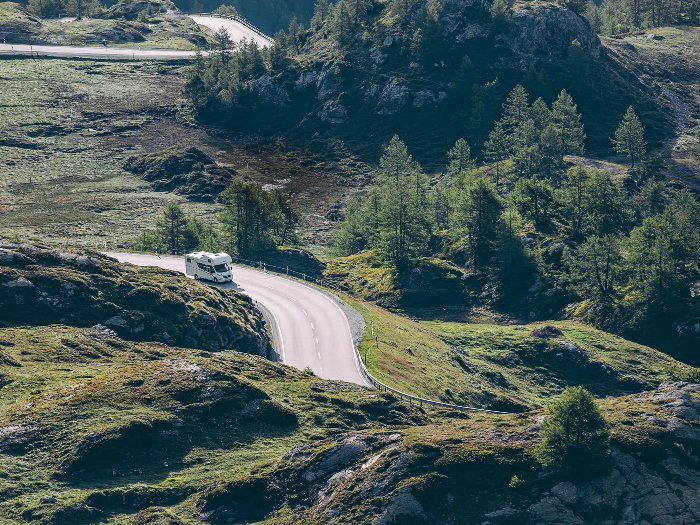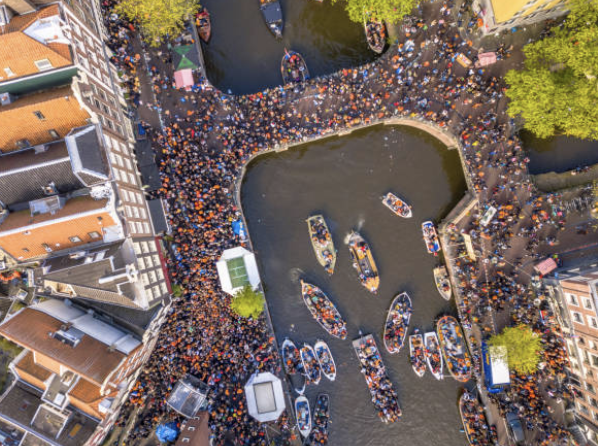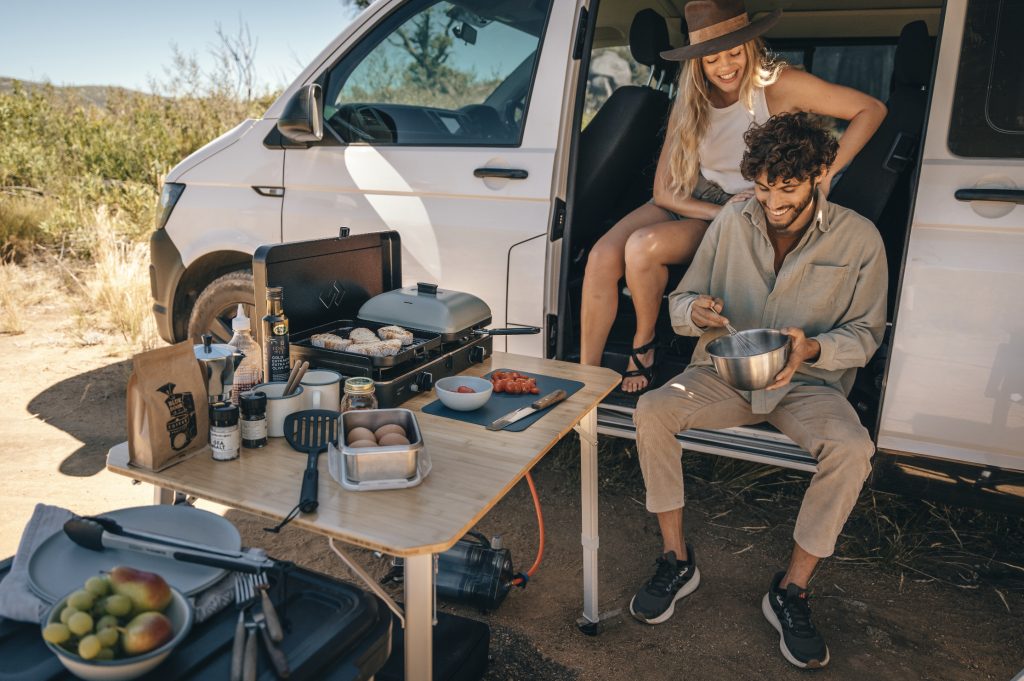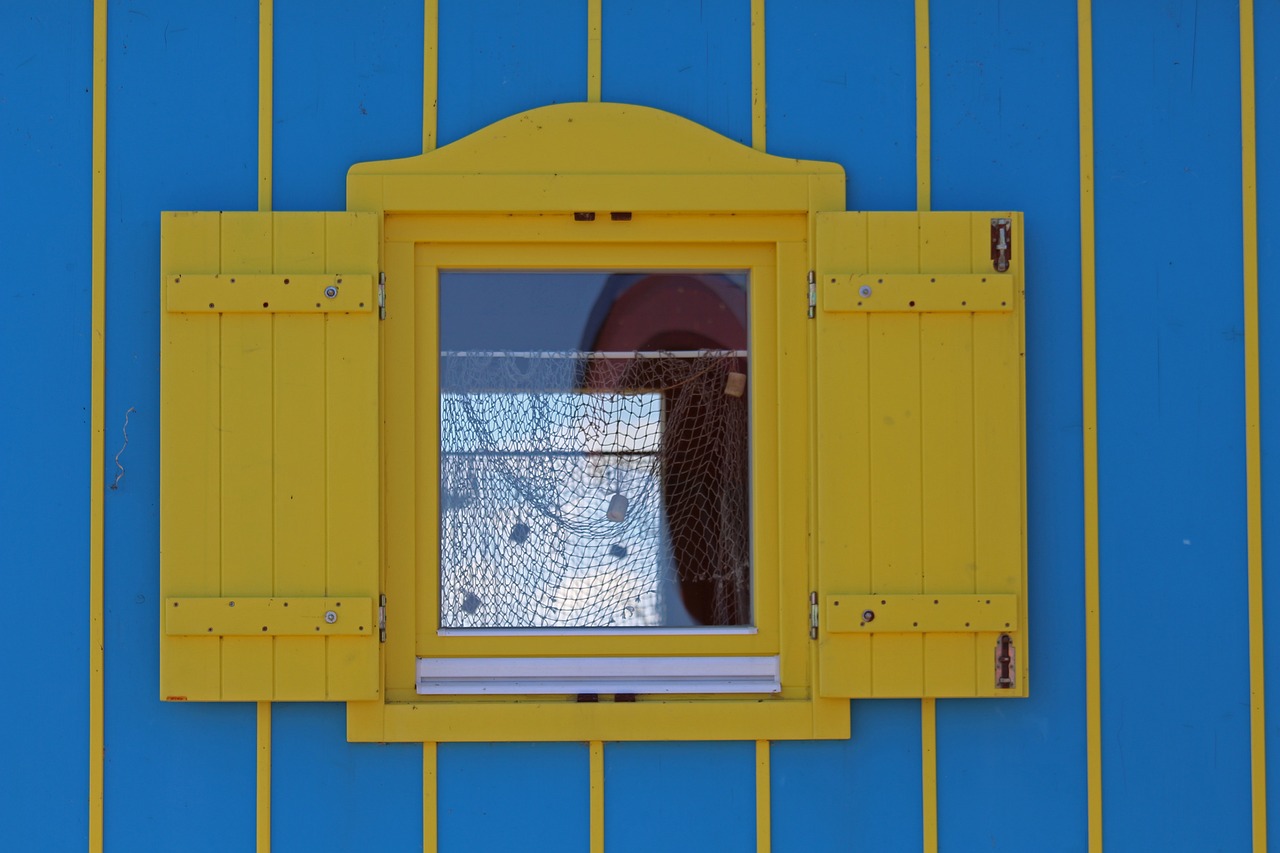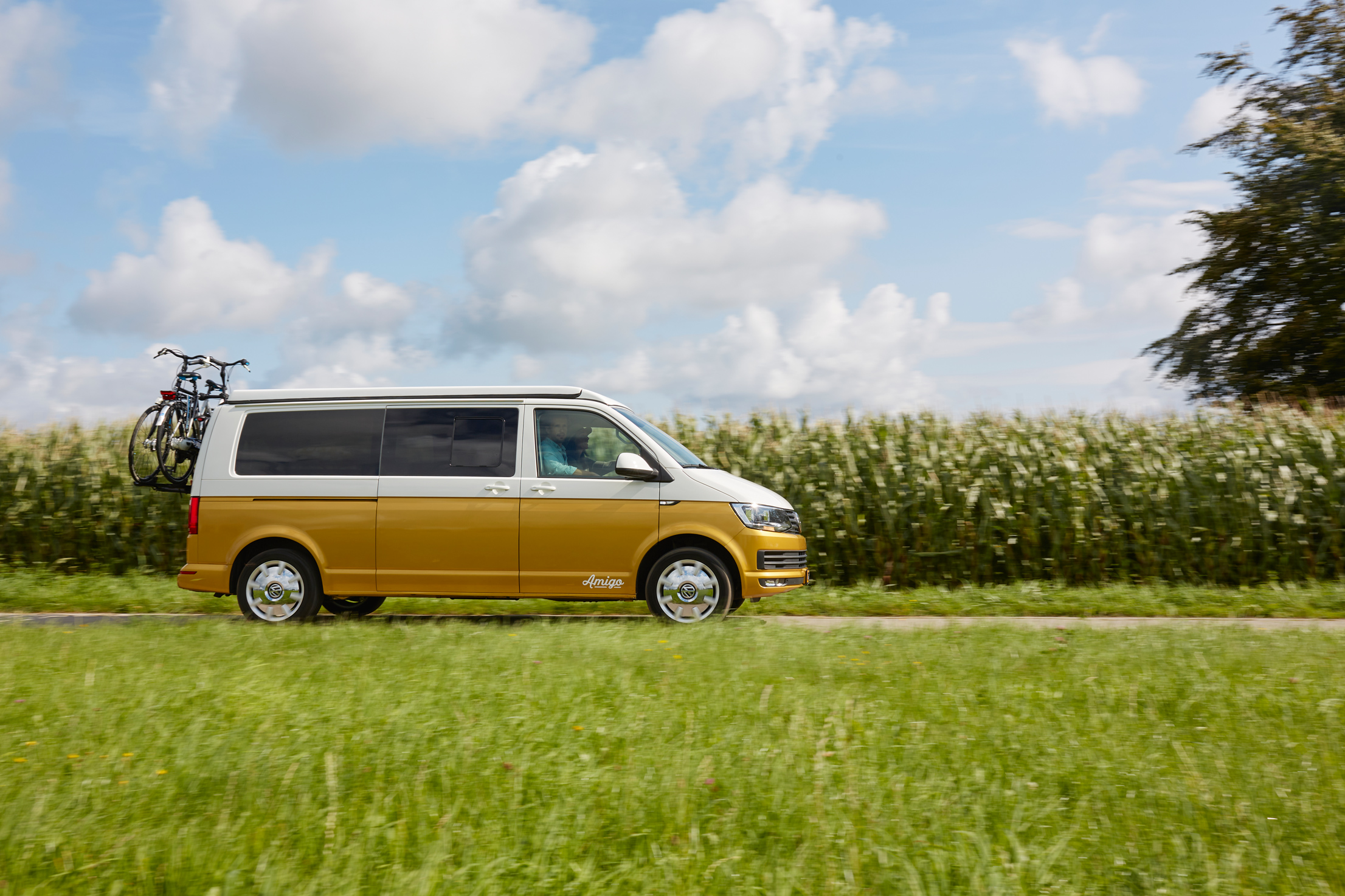Driving a camper: tips for beginners
It looks impressive, but driving a camper is easier than you think. If you can drive a passenger car, you can also travel with a camper. There are a few things you should take into account. CampersCaravans gives tips.
A camper is considerably heavier than a passenger car. And higher, longer and wider. To start with the latter: you will have to drive a camper a little closer to the center line to keep it in the middle of your road section. Due to the height, the camper is also more sensitive to crosswinds and gusts of wind from passing coaches - so look in your mirror more often so that you are not surprised by this. Another thing to take into account: the weight. You are on the road with a car that is almost three times as heavy as a passenger car and although campers brake excellently, it is wise to keep some distance from other road users.
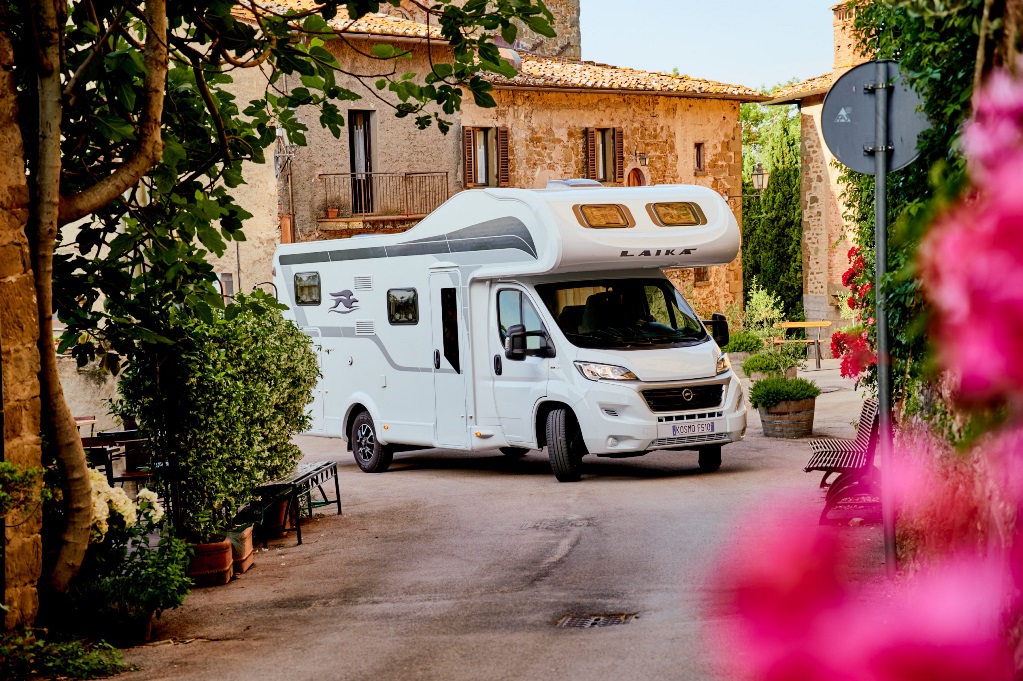
Tip: sticker on your dashboard
Place a sticker with the dimensions of your camper on the dashboard. This way you have height (including satellite dish!), width, length and weight immediately at hand if you suddenly see a warning near a bridge or viaduct.
Something you should take into account as a new camper driver is the wheelbase: the distance between the front and rear wheels of the camper. In a camper it is larger than in a passenger car. As a result, when driving a camper, you have to take the bends a little wider to avoid driving over the sidewalk with the rear wheels. So submit a little later. When making sharp turns, you must also take into account the length of the camper behind the rear wheels. The rear of the camper protrudes quite a bit, sometimes one and a half meters, which gives you a big 'swing', especially on sharp bends. You especially notice this when leaving parking spaces, after refueling or when turning in tight streets. The tip for these types of situations: use your turn signals, adjust your speed and don't let yourself be rushed. Look carefully in your mirrors and, if necessary, ask your co-driver to give directions outside.
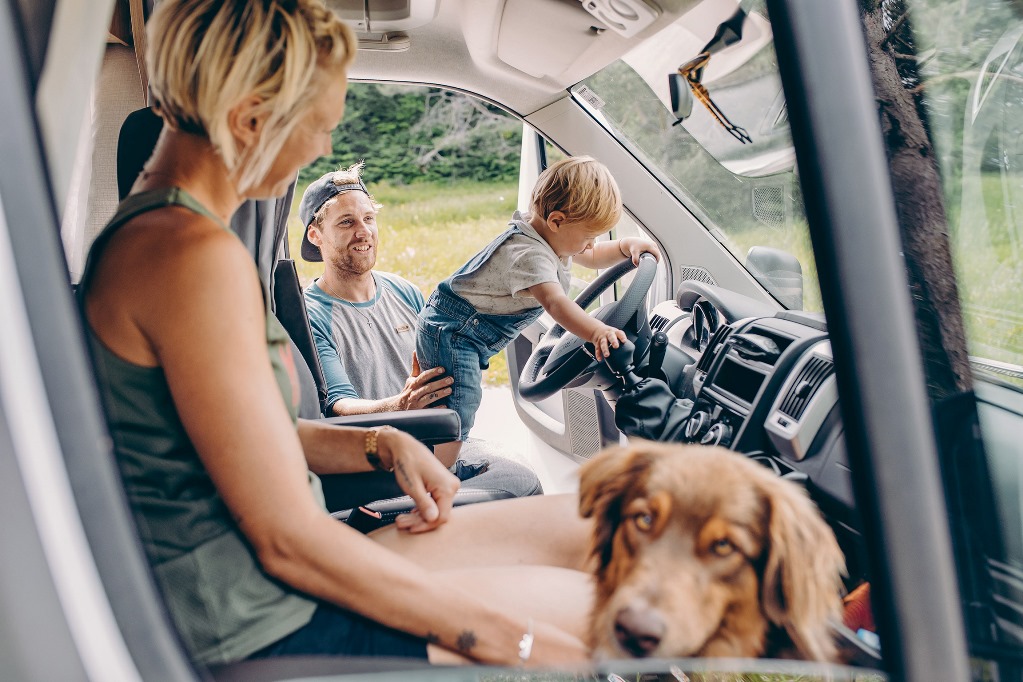
Tip: before you start driving
Before departure, check whether windows, luggage hatches and roof hatches are closed (also in the bathroom). Store loose items and keep the window blinds open: for a better view all around and to avoid being shocked if they suddenly come loose when you drive over a bump.
Campers have double mirrors on each side: a 'normal' rear-view mirror and a so-called blind spot mirror. You can adjust the latter so that you also see overtaking cars right next to the camper, but also cyclists at the traffic light, for example. The blind spot mirror also shows a large part of the side of the camper: this way you can easily see whether you are still between the white lines of your lane. Another important tool when driving a camper is the reversing camera. It usually has two positions: straight down, as a maneuvering aid when parking in reverse, and straight back. You can also use the latter position as an 'internal mirror' to keep an eye on traffic behind you.
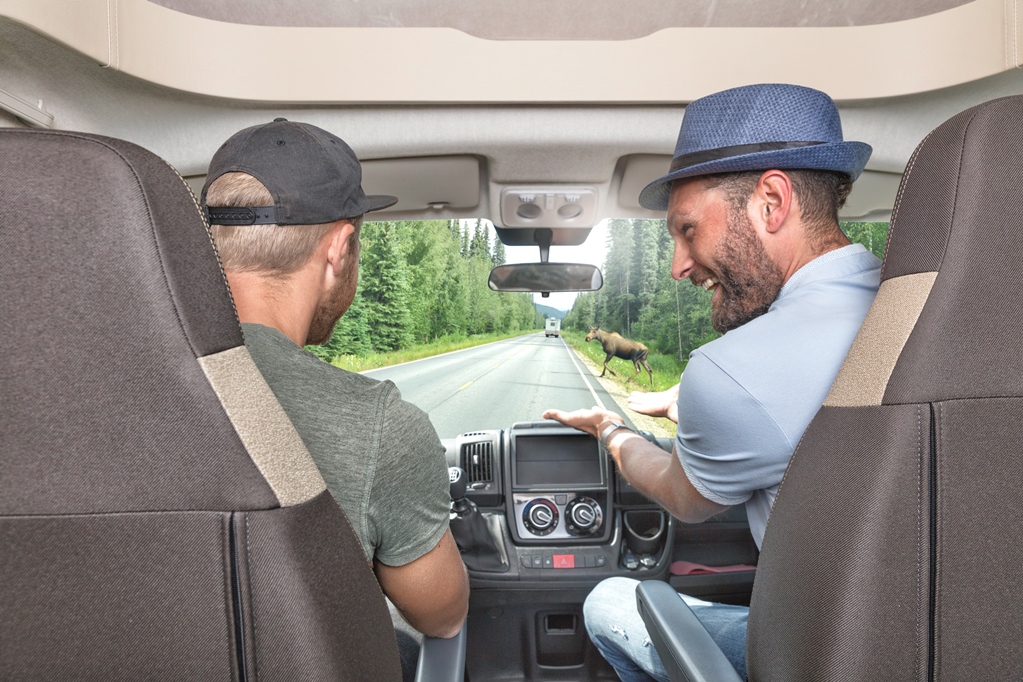
Tip: loading
Light items in the upper cupboards, heavy items at the bottom, preferably between the axles of the camper. Beware of overloading. Don't immediately fill up your entire drinking water tank - twenty liters of water is more than enough for the road. And only take groceries with you for the first few days.
Despite their considerable weight, modern campers can keep up with traffic. An excellent cruising speed on major roads is around 100 km/h: fast enough to easily pass trucks. On smaller roads the speed limit is usually 80 km/h. Maybe even a little slower on winding back roads, because the camper usually leans slightly around bends due to the higher center of gravity. This could cause a traffic jam behind you. If that happens, just find a place to stop so that the line of passenger cars can pass you.
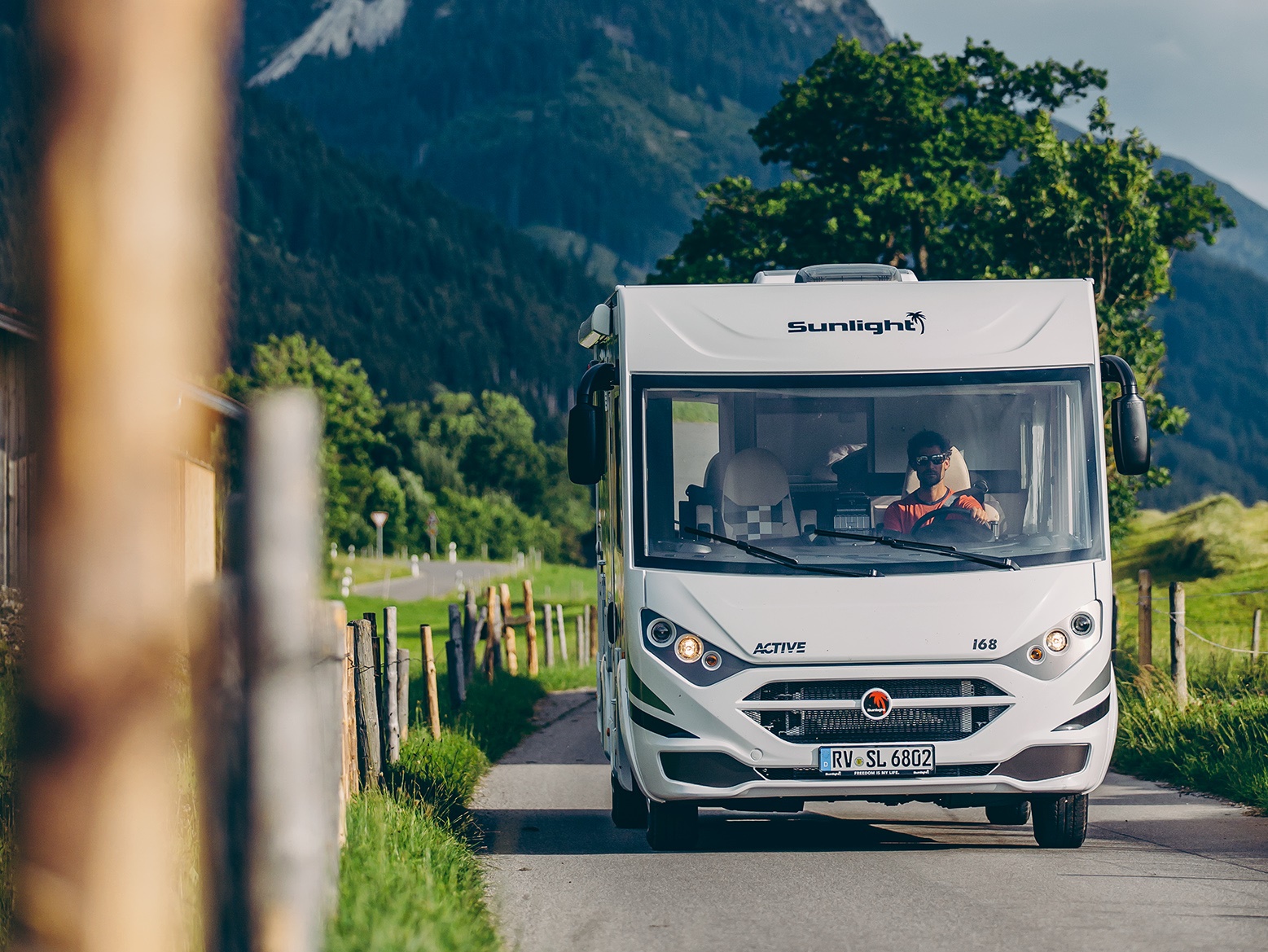
Tip: camper navigation
A 'normal' navigation device does not take the dimensions of your camper into account - special camper navigation (such as from Garmin and TomTom) does: you can enter height, width and length after which the device calculates a customized route.
The nice thing about camper holidays is that you can easily travel long distances on the highways and then enjoy tourist routes. Please take the dimensions of your camper into account. Trees do not grow straight up and overhanging branches – or rocks – can damage your camper. This also applies to crooked lampposts, especially if there is a manhole cover next to the sidewalk - when parking you quickly tap such a lamppost; damage is in a small corner. You also pay close attention on location. A reversing camera sees perfectly how much space you have left at the rear bumper, but that overhanging branch near the roof... it doesn't see it. In unclear situations it is useful if the co-driver outside takes a look. And not behind the camper but next to it, at the back. This way you maintain eye contact with the driver and with the window open you don't have to shout at each other.
Tip: stay overnight
With your camper you can go to campsites and special camper spots near a village, a marina or a restaurant. Once you have found your spot, it is nice if the camper is level. That sleeps better. You use special ramps for the front wheels for this. Be careful not to fall off the wedge; let your fellow passenger give directions outside.
Looking?
At CampersCaravans you can choose from one wide range of campers. Even if you have one looking for a caravan, you've come to the right place. Of course you can do much more camping tips en camping news find on our website. Your adventure starts at CampersCaravans.nl.
